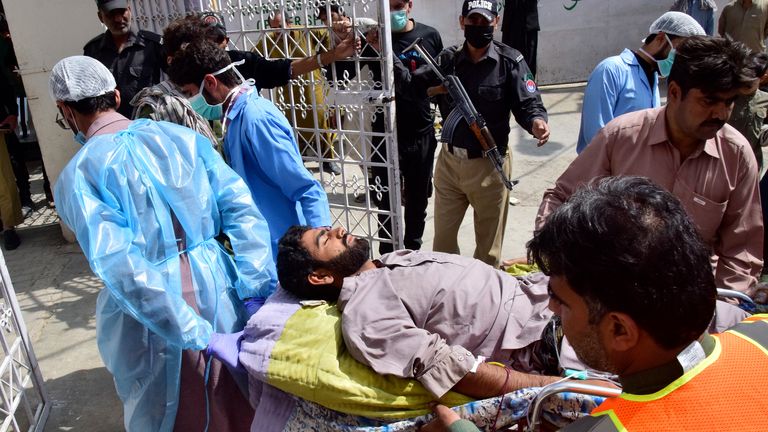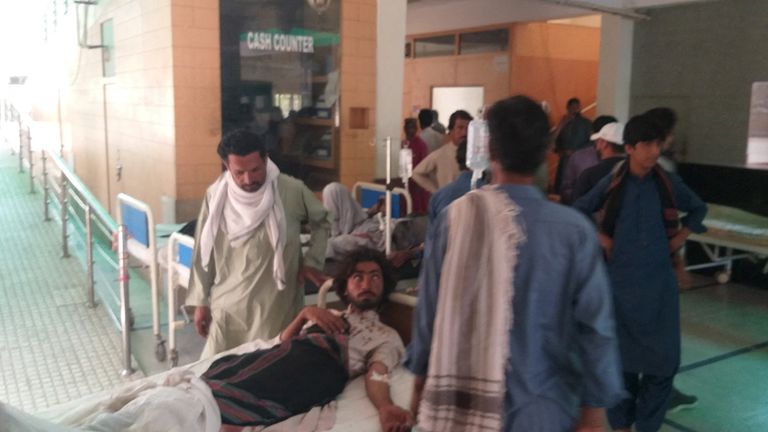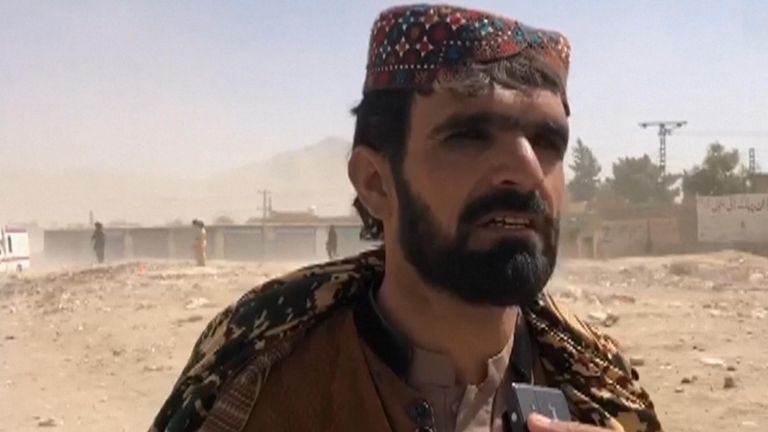Pakistan: At least 52 killed and dozens injured in suicide bombing
The country has seen a resurgence of violence by Islamist militants since last year when a ceasefire broke down between the government and the Pakistan Taliban, but extremists deny responsibility for the latest civilian atrocity.
Friday 29 September 2023 14:24, UK
At least 52 people have been killed and dozens more have been injured in a suicide bomb attack in Pakistan, officials have said.
The explosion happened near a mosque in Mastung, a district in the tense southwestern province of Baluchistan, according to government administrator Atta Ullah.
Meanwhile, a separate blast at a mosque inside a police station in Hangu, a district in the northwestern Khyber Pakhtunkhwa province, killed at least four people and injured 12.
Most of the worshippers were police officers.
However, the authorities say more casualties were avoided because the suicide bombers had been intercepted and people left the building after they heard firing.
The country has seen a resurgence of attacks by Islamist militants since last year when a ceasefire broke down between the government and the Pakistan Taliban.
But the hardline group, which has carried out some of the bloodiest attacks inside Pakistan since its formation in 2007, has denied responsibility for Friday's attack in Mastung.
The injured were taken to nearby hospitals with some in a critical condition.
A senior police officer, Mohammad Nawaz, was among the dead, Mr Ullah said.
At the time, about 500 people had gathered for a religious procession to mark the birthday of the Prophet Muhammad, which is a public holiday.
TV footage and videos on social media showed the area strewn with the shoes of the dead and wounded after the bombing.
A state of emergency has been declared and appeals issued for blood donations.
It comes days after police were asked to remain on maximum alert over fears celebrations could be targeted.
Deputy inspector general of police Munir Ahmed said: "The bomber detonated himself near the vehicle of the deputy superintendent of police."
Interior minister Sarfraz Bugti branded the attack a "very heinous act".
Read more on Sky News:
Drone attacks cause power cuts in Russia - war latest
Head of armed forces summoned after 'unprecedented' surge in violence in Sweden
Also on Friday, the military said two soldiers were killed in a shootout with the Pakistani Taliban after insurgents tried to enter the southwestern district of Zhob in Baluchistan province.
Three militants were killed in the exchange, according to the authorities.
The gas-rich province at the border of Afghanistan and Iran has witnessed a low-level insurgency by Baluch nationalists for more than two decades.
The extremists initially wanted a share of the region's resources, but later launched an uprising demanding independence.
In July, more than 40 people were killed in a suicide bombing in northwestern Khyber Pakhtunkhwa province at a
religious political party's gathering.







